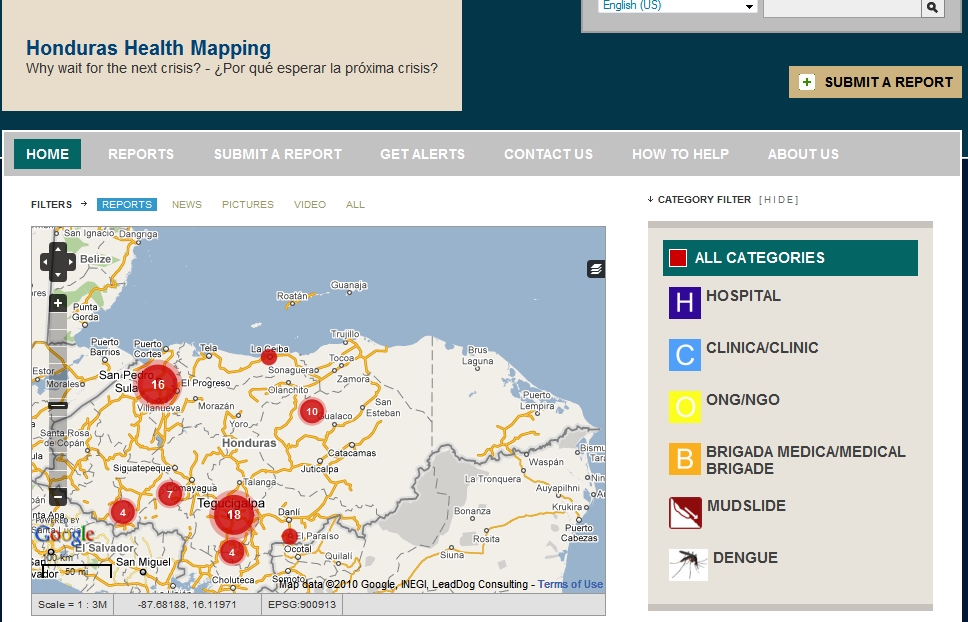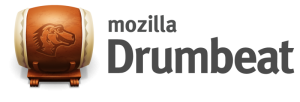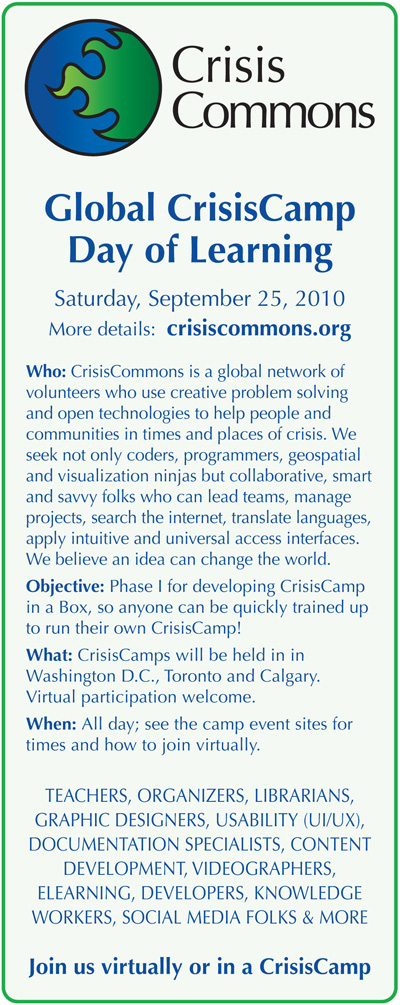Paul Jones believes that a map can change the world – starting with Honduras. A third year McMaster University medical student, Paul has taken two tours with the medical brigades in Honduras. In the past month, he has developed a unique Crowdmap providing visual story of Honduras hospitals and the rise of Dengue outbreak. I’m posting his story because he needs your help. Paul is a symbol of future mapper. Someday students around the world will follow his path by taking their discipline to crowdsource open source tools like Crowdmap.

What is your Crowdmap project?
I originally started this project due to the lack of available information about the health system in Honduras and lack of collaboration between health-based Non-Governmental Organizations (NGOs). My only motivation is to accurately catalog the existing health infrastructure and resources in Honduras to better facilitate communication and collaboration. As one collaborator put it: “Here’s to a healthier, better educated Honduras”. Often, NGOs utilize teams or “brigades” of foreign medical personnel that have little knowledge of the Honduran health care system or existing projects so there is often duplication and redundancy. I wanted to try to break down these silos and provide easily accessible information for other projects, clinics, hospitals and medical teams.
The entire project is open source and information gathered through crowdsourcing and modeled after CrisisMappers. Crisismappers brings together practitioners, scholars and developers at the cutting edge of crisis mapping. They have developed deployments during the Haiti earthquake, Chilean earthquake and the recent floods in Pakistan by leveraging volunteers to map large quantities of data onto a single dynamic platform. Content is freely accessible to improve the overall effectiveness of the response.
What have you learned? Any obstacles?
My first priority has been to establish the exact location of hospitals (Public, Private and NGO). After this is complete, I’ll focus on mapping clinics and NGO projects. This is a labour intensive project, so it is heavily dependent on my free time or volunteer capacity.
I am in contact with a number of individuals working/living in Honduras and the USA/Canada who have an interest in this project. It is really in its infancy. I am open to suggestions as to how it can be improved and most effectively utilized to improve health for Hondurans as well as how it can be used to compliment and not duplicate existing efforts.
I’ve been following the ongoing Dengue outbreak in Honduras and thought that this might be worth incorporating into the existing map. My original slogan for the project is why wait for the next crisis. It appears that Honduras is now in the midst of a crisis. Thus, I’m attempting to gather information about both Honduran health structures as well as the recent Dengue outbreak. I would love to update this map to be more relevant and detailed about the current situation in Honduras.
How can we help?
I am the only one actively collecting the information, emailing NGOs, reading news reports and mapping for this project. I am also attempting to plug into the various crisis mapping communities, all while staying on top of my medical studies. I would love some more experienced and knowledgeable crisismappers involved in this project. I have recently made contact with the Medicine sans Frontieres (MSF) mission in Honduras and they have been providing me with copies of the epidemiological reports of the Dengue outbreak. I haven’t time to map this yet. I am hoping in the coming days to establish some contacts within the FrontlineSMS/SMSMedic community with individuals running SMS based health projects in Honduras to see if collaboration might be feasible. I’m on twitter hoping that this may attract the attention of some potential volunteers.
You can access and edit the working spreadsheet of Honduran Hospitals, Clinics, NGOs and Medical Brigades by using the Google spreadsheet.
More information about this project can be found by following these links.
Honduras Health Crowdmap
Paul on Twitter
More about Paul
My name is Paul Jones, I am 22 years old and in my 3rd year of Medicine at McMaster University (in Canada). I’ve been to Honduras twice with medical brigades and am active with a couple of NGOs which work in the health field in Honduras. I’m in my final year of Medicine at McMaster University. I plan to pursue a residency program in Family Medicine with potentially some additional training in Emergency Medicine as well as Travel/Tropical Medicine. Briefly, I flirted with the idea of pursuing specialization in Infectious Diseases, but have decided that Family Medicine would be a better fit for me. I am still really interested in Virology and Global Health. During medical school I have been writing articles for our student newsletter Placebo about neglected, infectious diseases and other Global Health topics. I’m also writing an article about the unprecedented outbreak of Dengue Fever and Dengue Hemorrhagic Fever in Honduras.
Update: (Tuesday, September 21, 2010)
Paul is now collaborating with a few volunteers from the CrisisMappers mailing list.
Update: (Monday, September 27 2010)
Ushahidi features Mapping Honduras.



